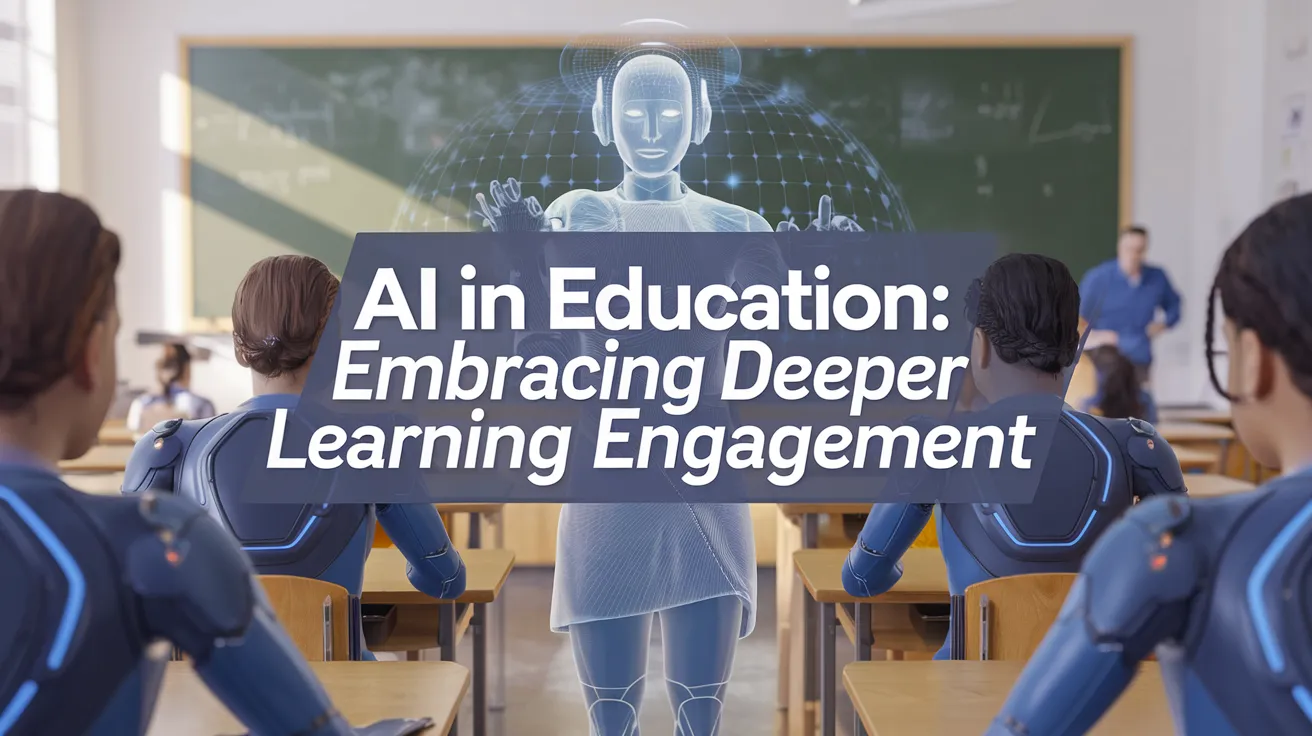AI in Education: Embracing Deeper Learning Engagement

Artificial intelligence (AI) has burst onto the educational scene, making a significant impact across various education levels, particularly in higher education. This rapid emergence has led to a divisive response, with many educational institutions opting to ban AI altogether. Such restrictions have threatened students with penalties for utilizing AI, a move that may ultimately hinder their learning experiences. As colleges grapple with these dilemmas, further education (FE) institutions are presented with a cautionary tale—a prime example of what to avoid.
AI usage among students is not a trend that will fade; instead, it is a growing reality that educators must acknowledge and adapt to. To foster deeper learning engagement, it is essential for educators to find ways to integrate AI into both current and future curricula in a manner that benefits students. By embedding AI into education, students can engage more profoundly with their learning journeys.
Building Digital Skills in Education
One primary step for educators is to develop essential digital and AI skills within the curriculum. By doing so, students not only learn about AI but also prepare for a workforce where AI competency is pivotal. As businesses prioritize AI capabilities, restricting its use could jeopardize students’ career prospects. Educators are rightly concerned about potential overreliance on AI. Yet, a careful balance must be struck, allowing AI to enhance educational experiences rather than replace traditional learning methods.
Collaboration with Industry Professionals
Another avenue to explore is collaboration with local employers and industry experts. Gaining insights from these professionals can provide educators with a clearer understanding of how AI is utilized in real-world scenarios. Such partnerships will help ensure that any skills training and AI assessments are relevant to current industry demands, empowering students with the necessary knowledge before they enter the workforce.
Enhancing Student Engagement with AI Tools
AI has transformative capabilities, particularly in providing instantaneous feedback to students. This feature can significantly enhance the learning experience by enabling students to receive personalized feedback in real-time—an aspect that has been shown to increase engagement and improve performance. Tools powered by large language models (LLMs) can curate feedback for individual students, balancing educators’ workloads while ensuring adequate support for learners.
Maintaining Fundamental Skills Alongside AI
While teaching students to effectively use AI is crucial, it is equally important to ensure that they do not lose sight of foundational knowledge. Regular assessments should still focus on students’ subject mastery, separate from their AI skills. This limits the risk of overdependency on AI and ensures that students develop critical thinking and problem-solving abilities. An effective method to achieve this could be akin to having separate calculator and non-calculator sections in math exams, reinforcing the need for fundamental understanding.
The Future of AI in Vocational Education
As AI technology continues to evolve and become ubiquitous, the demand for AI skills will only intensify. Educational institutions should recognize the immense opportunity presented by AI in facilitating deeper learning engagement. Restrictions on AI usage could cost educators a chance to modernize learning methodologies in alignment with real-world trends, particularly in vocational settings where preparing students for workforce success is critical. Rather than viewing AI as a threat, it should be embraced as a valuable tool to foster enriched educational experiences and improved academic outcomes.
AI doesn’t replace the essential role of educators; instead, it complements their efforts, promoting a more engaging learning environment that ultimately supports student success across the board.